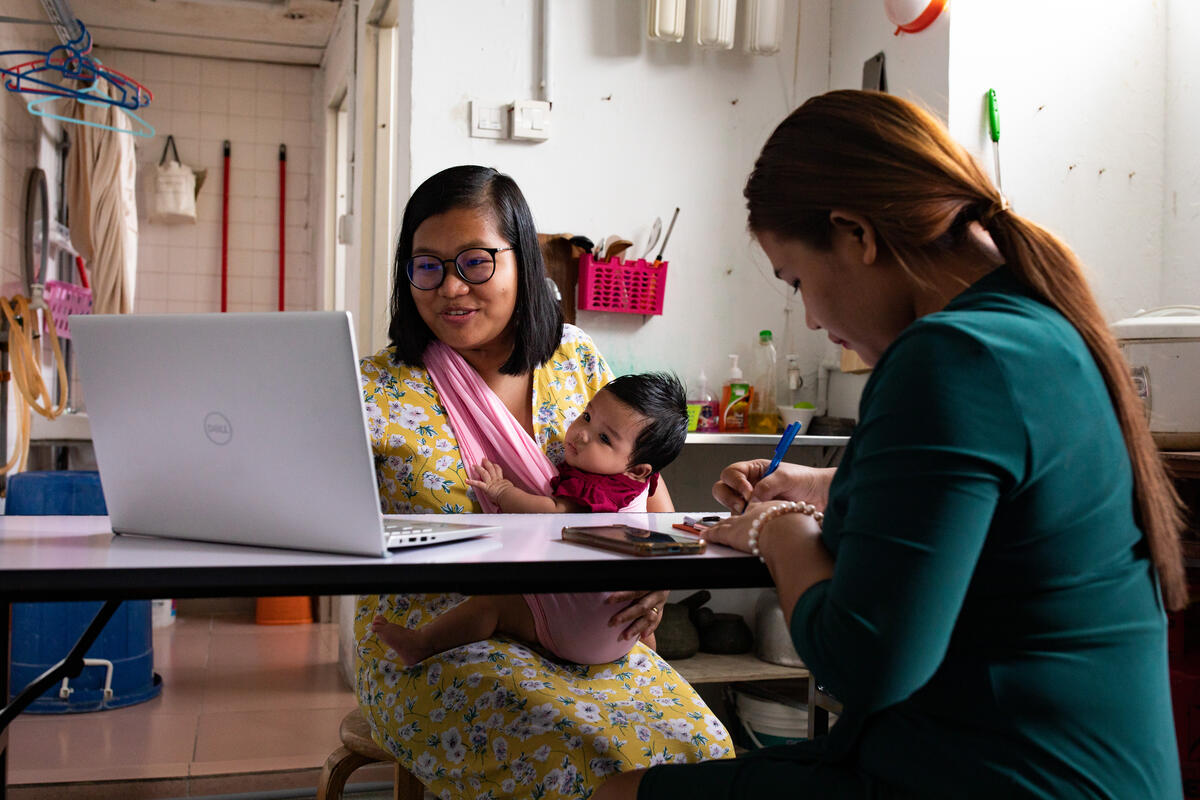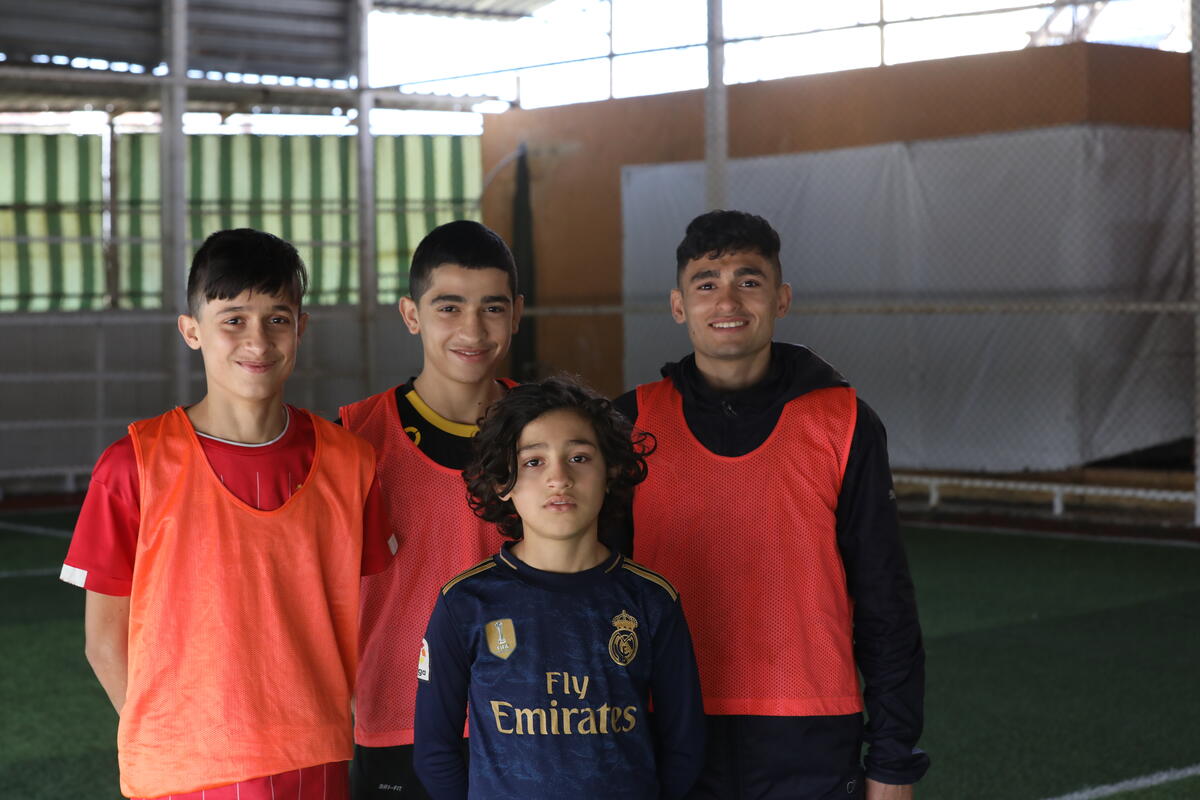Donkey ambulance brings dignity and comfort to Darfur camp
Donkey ambulance brings dignity and comfort to Darfur camp

MUKJAR, Sudan, October 29 (UNHCR) - In Albania, it is dubbed a "Balkan moped," in the United States it is often kept as a beloved pet, but in Sudan's Mukjar Refugee Camp the donkey can be the difference between life and death.
To date, sick people in need of transportation to the nearest clinic have had to endure an uncomfortable ride atop a camel or on the back of an open horse-drawn cart, exposed to the searing heat of the sun.
But the UN refugee agency has stepped in by donating a covered wagon, with padding inside, and a donkey to pull the "ambulance." It's not the height of comfort but has been welcomed by the 750 refugees from Chad and the Central African Republic who reside in Mukjar, West Darfur.
The donkey ambulance shuttles patients, including pregnant women, the two kilometres between the refugee camp and a clinic in Mukjar town run by UNHCR partner, International Medical Corps, which provides medical consultations and treatment. The ambulance is on 24-hour standby in case of emergencies.
The service is managed by an elected committee of male and female refugees, who appoint members of the camp population to feed and look after the donkey on a rotational basis. In exchange, they get the right to make a bit of money by ferrying people to the local market.
Not surprisingly, the innovation has been warmly welcomed in a camp where there are a lot of elderly people and children, who are more liable to fall sick than young, able-bodied adults. A similar service in Darfur's Um Shalaya camp is also very popular among the 5,000 Chadian refugees there.
Before the Mukjar service was launched, most families sought treatment from traditional healers in the camp and would often wait until the last moment before sending an ill relative to see the doctor. The danger was that by delaying treatment, a chest infection, for example, would deteriorate into a life-threatening case of pneumonia.
Because the donkey ambulance has helped shrink the distance between the camp and the clinic, the elderly are now less inclined to forego or delay medical treatment because of transportation difficulties or costs. The covered ambulance has brought dignity and a degree of comfort to patients young and old.
The mobile medical facility has also come as a boon to women and girls in the camp. It helps alleviate the hardships expectant mothers go through on their way to the clinic to give birth. And girls are now getting the regular health care they need thanks to the availability of free transport.
"The donkey ambulance has eased the burden on a community that is preoccupied with eking out a living from farming," said a UNHCR member of staff.
In the arid wastes of West Darfur, man's best friend is clearly the donkey.
By Sumbul Rizvi in Mukjar, Sudan
and Teresa Ongaro in Khartoum








